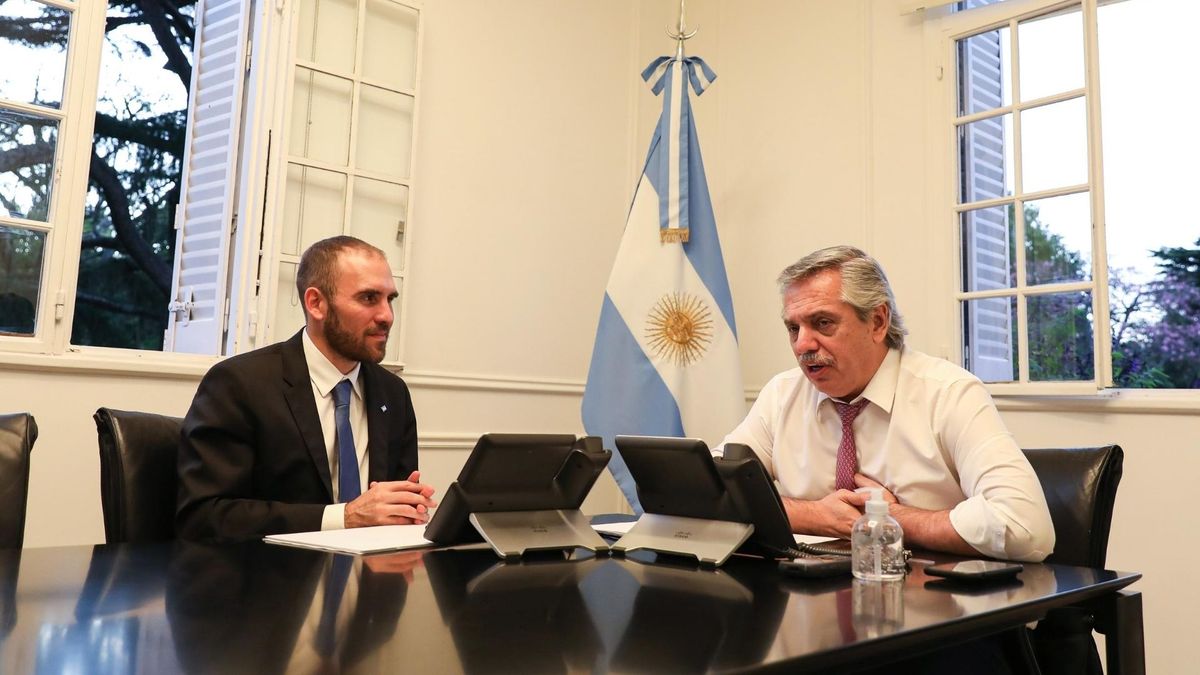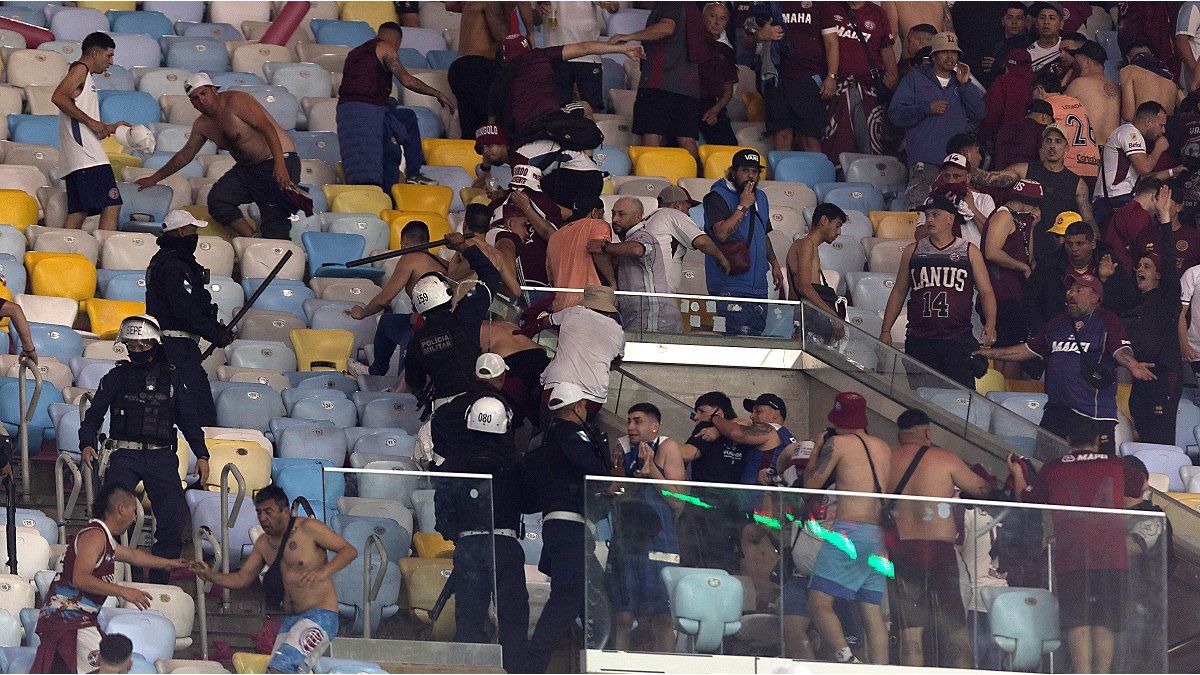Albertism wants to resume an agenda with issues of economy and society, two pending issues much more urgent than a few years ago due to the impact of the pandemic. As a result of the election through, he will have to question all the figures of his coalition, weigh the support he has. But you will also have to look for allies in other spaces.
For it, Gustavo Beliz, the Secretary of Strategic Affairs has a vital role, nothing more and nothing less, than to host the main discussions that will seek consensus. You can use the Economic and Social Council (it is the wish of the president) but not only the Council: Congress should also serve as a sounding board.
Of course, the post-election political construction envisioned in Balcarce 50 will begin in the street. Next Wednesday, the day of militancy, there will be, in principle, mobilization and various support for the presidential figure and the cast, and in his figure, they say, a new vote of confidence in the coalition that is the Frente de Todos. That date triggers the commemoration of the return of Juan Domingo Perón to the country after almost 20 years in exile. There will be the dome of the brand new CGT, the Peronist unions, the social movements. The Chief of Cabinet Juan Manzur will surely manage to thread the support of the governors (except those of the Soy Peronism). It is also sought, although there are still no certainties in the Casa Rosada, that all of La Cámpora can come together in the act.
There are some signs that are already on the horizon. It was Sergio Massa the one that evidenced a turning point in the relationship of the members of the Frente de Todos when a few days ago it summoned all the political, economic and social sectors for the 15N, the day after the elections.
Starting tomorrow, the call would include all opposition parties, businessmen, unions and community organizations, but not only them.
From there two definitions derive: the first is that there will be no formal invitation for the opposition exclusively, since the referents of Together for Change rejected any insinuation to talk about what was and is the economic and social heritage that faces the ruling coalition.
President Alberto Fernández seems to be clear that he will not be able to count on valid interlocutors on that side. Yes, on the other hand, the Government is excited about the relative weight that business, political and social leaders can bring to it. Some on the list already like Daniel Herrero from Toyota, Antonio Aracre from Syngenta, Sergio Kaufman from Accenture and Laura Barnator from Unilever.
But also the former head of the Argentine Industrial Union, Miguel Acevedo; the Secretary General of the Metallurgical Workers Union, Antonio Caló; the President of the Argentine Agrarian Federation, Carlos Achetoni; the member of the brand new leadership of the CGT, Carlos Acuña; the Rector of the National University of Buenos Aires, Alberto Barbieri; the Secretary of the Union of Workers of the Popular Economy, Esteban “Gringo” Castro; the President of the Argentine Chamber of Construction, Iván Szczech; and the Secretary General of the Central de Trabajadores de Argentina, Hugo Yasky. And there is more.
All in all, the great challenge will be to “put” on that agenda the issues that urge Argentines: the creation of jobs, the brake on the erosion of purchasing power, the launch of a comprehensive export plan that can generate foreign exchange, resume a fluid dialogue with the entire agricultural sector. And there are two more: to agree on a unique position to resume negotiations with the IMF and to direct the exchange policy that does not stop giving urgency to the Government.
Strictly speaking, the challenge will be to put yourself in the shoes of the average Argentine, who went through four years of wrong economic policies in the madness of Change in power and two years of pandemic that deepened these imbalances, amid the most relevant social fracture of the last decades.
It is true that the macro indicators are at their best: activity, industrial production, the export records of the agricultural sector, all improved the 2019 numbers. But it is no less true that these numbers still cannot distort what they left the macrista pandemic and the other pandemic, that of Covid.
You have to look at the microeconomics, put on the shirt of the heads of the family. A priori, the president and his minister, Martin Guzman they already advanced the last week to businessmen who There will be no outright devaluation, although it is likely that there are small devaluation jumps at a rate higher than that of inflation, that is, a crawling peg so that the exchange rate imbalance does not cause restrictions to be piled up that are later complex to dismantle.
They also assured that there will be no default with the IMF, although there is still a long way to go with Kristalina Georgieva. That there will be fiscal discipline, but that in no way can it be implemented overnight and even less after a pandemic. In short, the data that Guzmán negotiates with the IMF are those proposed by the budget he expects in Congress.
For this, the president will extend the ordinary sessions of Congress until December 10, since he wants to insist on the approval of laws before that day half of the Chamber of Deputies and a third of the Senate are renewed. It should be remembered that in the budget Guzmán set inflation at 29%, but the increase in the cost of living could leave this in evidence.
But if it is evidence, none like that for 2022, the return, until now committed, of almost US $ 18,000 million with the IMF does not appear in the budget, nor does the more than 2,000 million dollars that are owed to it appear. to the Paris Club. Said in Creole, in Economics they believe that in one way or another that money will begin to be repaid from 2024 onwards.
Source From: Ambito
David William is a talented author who has made a name for himself in the world of writing. He is a professional author who writes on a wide range of topics, from general interest to opinion news. David is currently working as a writer at 24 hours worlds where he brings his unique perspective and in-depth research to his articles, making them both informative and engaging.




